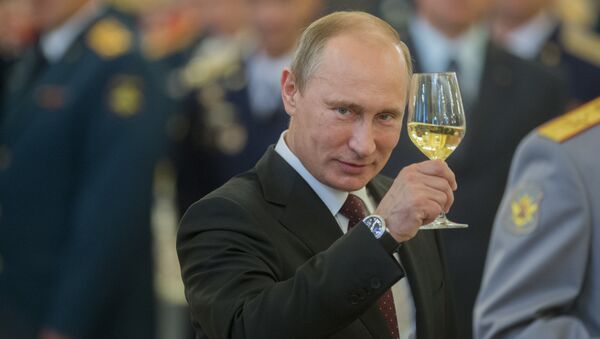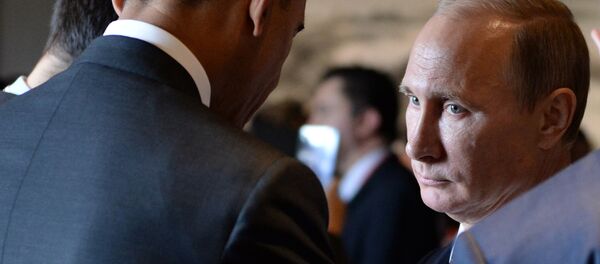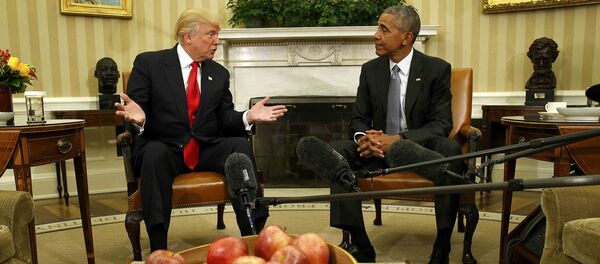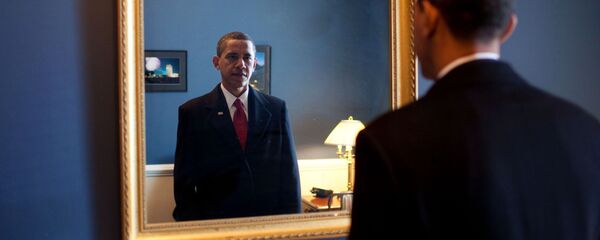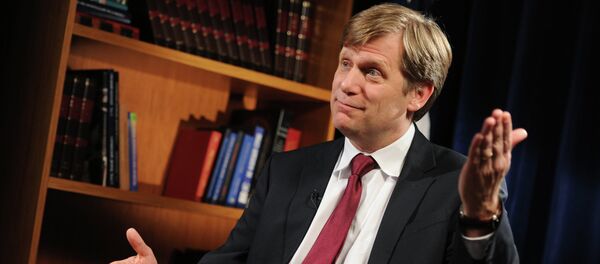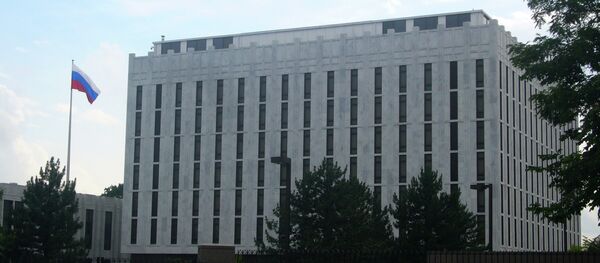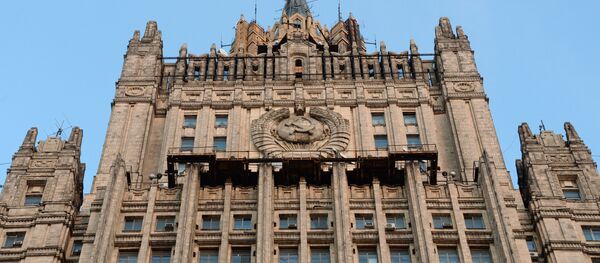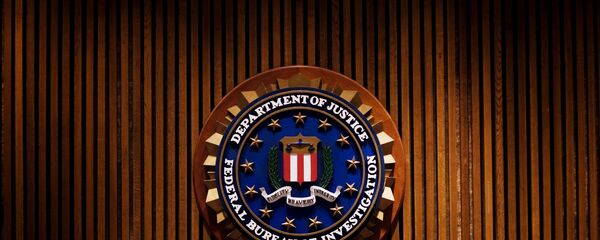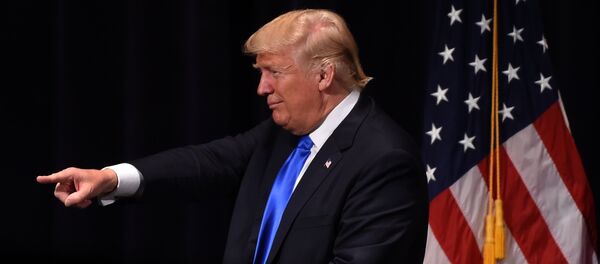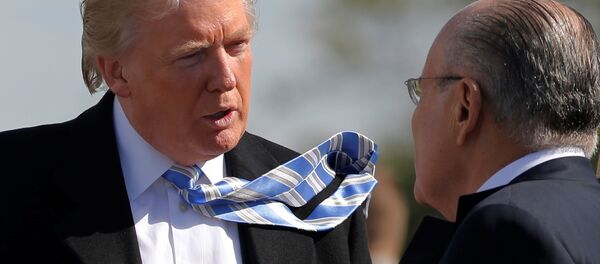Before the new sanctions were officially announced by the United States, certain media outlets published leaks on the issue. It was expected that restrictions would be particularly aimed against Russian security and intelligence services. But it was not expected that the United States would resort to expelling Russian diplomats.
In response, Russian Foreign Minister Sergei Lavrov proposed to expel from Russia 31 personnel of the US Embassy in Moscow and four personnel of the US General Consulate in St. Petersburg.
However, Russian President Vladimir Putin said that Russia would not expel anyone as a response to US sanctions against Moscow over alleged hacking.
"Reserving the right to retaliate, we will not resort to the level of irresponsible 'kitchen' diplomacy and further steps toward the restoration of Russian-US relations will be built on the basis of the policy carried out by the administration of President Donald Trump," the president said.
Putin also sent New Year greetings to the people of the United States and Donald Trump.
"I congratulate both the president-elect, Donald Trump, and the entire US nation! I wish you to be well and prosper," the Russian leader was quoted as saying by the Kremlin press office.
The Russian president also extended greetings to Obama and his family, but added he regretted his decision to expel Russian diplomats.
'Amazing Move'
In turn, Donald Trump praised the decision by President Vladimir Putin not to expel US diplomats from Russia in response to Obama’s sanctions.
"Great move on delay (by V. Putin) — I always knew he was very smart!" the US president-elect wrote on his Twitter account.
Great move on delay (by V. Putin) — I always knew he was very smart!
— Donald J. Trump (@realDonaldTrump) 30 декабря 2016 г.
Putin’s unexpected response was also discussed by mainstream media outlets.
"Putin's decision was the culmination of a hectic 18 hours in US-Russia relations," a report by CNN noted.
CNN’s former Moscow bureau chief and Russia analyst Jill Dougherty said called Putin’s move "amazing."
"It's an amazing move and it's classic Putin, I would have to say – he's a master of doing things that are unexpected, and this is truly unexpected," Dougherty was quoted as saying by CNN.
The analyst added that Putin’s response was an "enormous insult" to Obama.
"Putin’s move confirmed that Moscow is pinning its hopes on President-elect Donald Trump to help rebuild ties – which have plunged to their lowest point since the Cold War – when he takes office next month," an article in The Guardian read.
Acting 'Beyond Ethical Standards'
The history of the Cold War contains a number of examples of intelligence personnel working legally or illegally in embassies around the world.
Usually, if the government of a country wants to expel a diplomat it informs the accrediting state and hold consultations to reach a compromise. For example, such a diplomat can be replaced without making the issue public.
Traditionally, declaring a diplomat a persona non grata is a demonstrative gesture aimed to fuel a scandal or take on the accrediting government.
As for the expulsion of 35 Russian diplomats from the US, Washington seems to desirea new rise in bilateral tensions. In 1986, Ronald Raegan’s administration declared personas non grata 80 Soviet diplomats, in response to the expulsion of 30 US embassy staff suspected of espionage.
By expelling Russian diplomats, Washington did not violate any international norms, said Alexei Ispolinov, head of the international law department of the law school at the Moscow State University.
"As a sovereign state, the United States has the right to introduce sanctions. On the other hand, the reasons for such a move are unclear," Ispolinov told RT.
According to the specialist, the diplomatic law lacks a regulatory mechanism to impartially assess the validity of such claims.
"The government of the receiving country can accuse diplomats of everything. But the situation around Russian diplomats is an example of behavior beyond ethical standards. They expelled diplomats just before New Year… No comment," he pointed out.
'Anti-Russian Agony'
Earlier, Kremlin Spokesperson Dmitry Peskov said that Russia would take adequate measures in response to Obama’s decision.
Then, CNN quoted a US official briefed on the matter as saying Thursday that Russian authorities ordered closure of the Anglo-America School of Moscow, as part of retaliation for the new US sanctions.
"It is a lie. Apparently, the White House went completely mad and started coming up with sanctions against their own children," Russian Foreign Ministry spokesperson Maria Zakharova wrote on her Facebook page.
The Obama administration has sadly changed its course from restoring ties with Russia in its early days to "anti-Russian agony" as it enters its final month, Russian Prime Minister Dmitry Medvedev said Friday.
"Sadly, the Obama administration, which began its life with the restoration of cooperation, ends it with anti-Russian agony," Medvedev wrote on Twitter.
According to Peskov, the outgoing US presidential administration wants to finally ruin the ties between Moscow and Washington and undermine the foreign policy strategy of the new US president and his team.
The US must "move on to bigger and better things," Trump's team said, but in order to uphold the American people's interests he will consult with the intelligence community about their recent findings on the Russian spying allegations.
On December 26, Speaker of the US House of Representatives Newt Gingrich said that after the inauguration on January 20 Donald Trump would overturn 60-70 percent of Obama’s executive orders.
US media suggested that the new US president may fail to overcome the anti-Russian opposition in Congress. Trump’s intention to normalize ties with Moscow has not been shared by a large part of Democrat and Republican congressmen.
According to The Wall Street Journal, Trump’s plan to partner with Russia is unlikely to be endorsed by the Republicans who see Russia as a threat.
Obama Wants to Fix His Reputation
According to the expert, any sanctions against US diplomats in Russia would be a big concern for the American establishment.
"As a result, Trump would risk losing the scope for maneuvering. At the same time, the possibility of a major thaw between Moscow and Washington is not that strong," Nelin underscored.
"At first sight, the new US sanctions look like Obama’s hysteria. The outgoing president wants to undermine dialogue between Trump and Putin. To a certain extent, that’s right. But Obama also wants to achieve personal goals. He wants to be remembered as a strong leader fighting to the end," the expert suggested.
"US sanctions are a bargaining chip in geopolitical terms. They are an instrument of pressure. The US needs sanctions to resolve its geopolitical issues," he pointed out.
Nelin noted that normalization with Russia is not the priority goal of Trump’s administration, but part of the plan to "make America great again."
"Look at Trump’s team. It includes both pro-Russian and anti-Russian politicians. For the US, Russia always was kind of a scapegoat country," he concluded.
